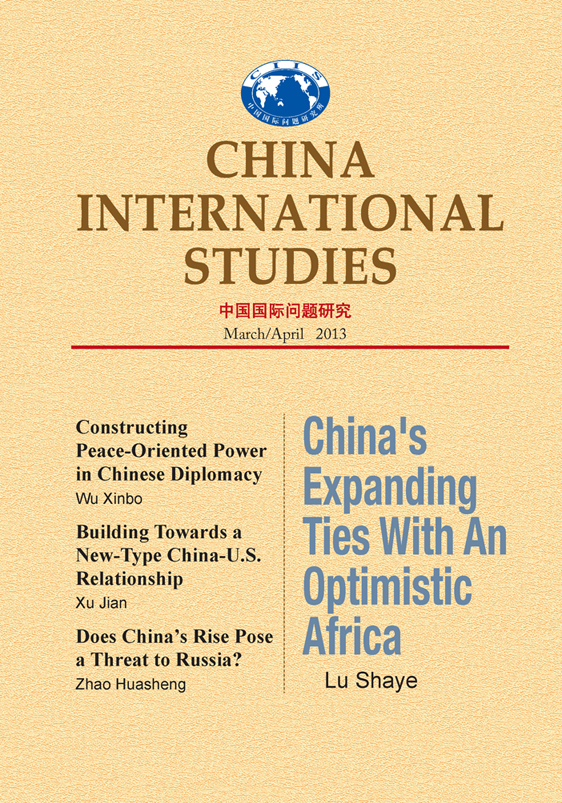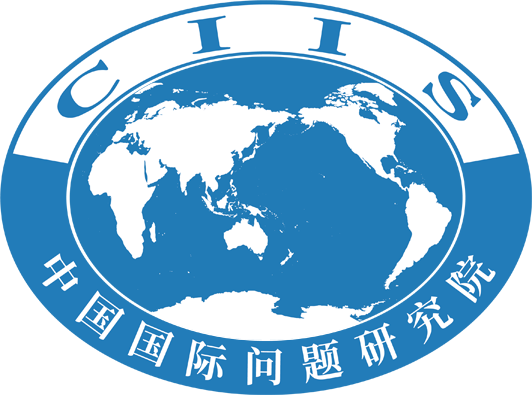Contents
Seizing Opportunities and Overcoming Difficulties to Promote the Development of China-Africa Relations
Lu Shaye 4
At present, the situation in Africa is experiencing profound and complex changes. Despite many difficulties and challenges, Africa is moving towards peace, stability and development. Strengthening the China-Africa friendly and cooperative relationship is an important cornerstone of China’s foreign policy, as well as China’s long-standing and firm strategic choice.
Constructing Peace-Oriented Power in Chinese Diplomacy
Wu Xinbo 20
As an emerging power, China has to put forward a new concept of power and propose a new way of applying power in order to go beyond the conventional way followed by other big powers in their one-sided pursuit and abuse of hard power in modern times and to shape China’s international image as an emerging power and formulate its new diplomatic style. The concept of peace-oriented power is the summarization of China’s diplomatic practices in the past 30 years with “peace, development and cooperation” as the purposes.
Building Towards a New-Type China-U.S. Relationship
Xu Jian 33
Unlike the traditional relationship between established powers and emerging powers in modern history, there are favorable conditions under which China and the United States can prevent major conflicts in economic, political, and security areas. The pressing task for the two sides now is to enhance communication and mutual understanding, and reduce or dispel the misperceptions so as to build up mutual strategic assurance and reduce or alleviate irrational strategic anxieties.
Does China’s Rise Pose a Threat to Russia?
Zhao Huasheng 55
The unbalanced development between China and Russia is considered the biggest challenge for the development of the two country’s future bilateral ties. Among Russian academics, skepticism concerning the bright prospects for the Sino-Russian relationship has always existed and it has always been popular to be skeptical about China as a threat to Russia. Bilateral ties need to be updated and add new elements to the agenda in order to ensure that it remains vibrant and lasting.
Managing Sino-U.S. Competitive Interdependence
Zhang Xiaotong & James Keith 72
Sino-U.S. economic and trade relations are moving into an era of “competitive interdependence”. An economic and trade relationship that is mutually beneficial and win-win in essence is facing challenges that feature a competitive, zero-sum game which pursues relative gains. Mutual suspicion is the psychological root of the zero-sum game between China and the U.S. while the cognitive root of their mutual suspicion is the sense of uncertainty and lack of self-confidence about the future of its own and the other side.
The EU’s New Approach to Global Governance
Jin Ling 90
For a long period, the European Union has been trying to promote the establishment of global mechanisms at various levels to spread its rules, norms, and ideas. It has done so by enhancing trade, foreign aid and institutional cooperation globally. However, with the EU’s relative decline in international stature, it has shifted its focus from idealism to realism and adjusted its perspective and methods of international governance, placing more focus on the acquisition of practical interests in path selections and agenda implementations.
Asia-Pacific Regional Economic Cooperation and CJK Cooperation
Jiang Yuechun 109
In the aftermath of the international financial crisis, the center of world economy begins to shift to Asia-Pacific Region at an accelerated rate, and China as a rising emerging economic power brings about more opportunities to the world. In this context, both the US and Japan feel the need to revise their Asia-Pacific policies which focused on the TPP agreements. At a time when the prospect of Asia-Pacific cooperation is still uncertain, tendencies in China-Japan-Korea (CJK) cooperation will definitely catch more attention from the world.
The “Middle Income Trap”: An Expanded Concept
Jiang Shixue 129
In recent years, Chinese academia has closely followed the concept of the “middle income trap”. However, when studying this issue, many scholars “expanded” this concept and raised some false arguments. This paper will clarify the definition of the “middle income trap”, point out the misunderstandings made by Chinese academia, and answer the most important question: Have Latin America and China fallen into the “middle income trap”?
The Sabah Conflict: Grim Vision for ASEAN Security Community?
Paul Pryce 140
The process of integration in Southeast Asia has culminated in plans to form an ASEAN Community, encompassing economic, social, cultural, and security cooperation by 2015. But what ramifications might the recent instability in the Malaysian region of Sabah hold for these aspirations? What opportunities might the Sabah conflict hold for ASEAN as an emerging political and security community?




